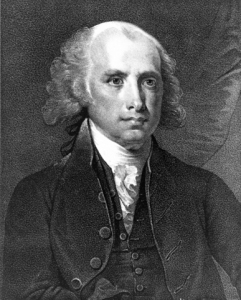
This past week the General Assembly finally passed legislation to give the Ethics Commission jurisdiction over the General Assembly.
That means, come Nov. 8, when you go to vote, there will be a question on your ballot asking you if you want to amend the state constitution to hold your legislators fully accountable to the state Code of Ethics.
Ethics reform was not just a bill, but a journey. While it has taken us six long and arduous years to get ethics reform written into law, I am very pleased that the day has finally arrived.
In a 2009 Supreme Court decision, members of the General Assembly were effectively rendered immune to Ethics Commission jurisdiction and the state Code of Ethics for conduct within their core legislative duties. At that time, the court decided that the Ethics Commission passage was in contradiction to a clause in the constitution guaranteeing legislators free “speech in debate.”
So, the constitution had to be changed.
The six-year work to return the jurisdiction of the Ethics Commission over the General Assembly was initiated by my dear friend, the late Sen. Michael Lenihan. Mike knew that integrity matters both personally and publicly. Our government needs to possess integrity in the eyes of the public. People need to have confidence that their government works for them, not just the well-connected.
Humans are imperfect beings. As James Madison famously wrote in the Federalist Papers, “If men were angels, no government would be necessary.”
We all need rules to check our behavior as well as a mechanism to hold persons accountable for unethical behavior. Re-instituting the state Code of Ethics over members of the General Assembly will encourage members to listen to the better angels of their nature, whose voices remind us all that the nobility of public service resides in placing the common good above self-interest. When lawmakers do this, we are at our best in making a real difference in the lives of others.
This ethics amendment is a good and sound measure. I firmly believe that it will help us restore a modicum of the peoples’ trust in their elected assemblymen and women. In light of recent events, this amendment could not come at a better time.
There will always be the bad actor — the lawmaker with a reckless disregard for the law who perverts the system he or she is sworn to uphold. And no question — when that lawmaker is rooted out, he or she should be shown the same amount of regard that they showed the people of Rhode Island. But since we’re judged by the company we keep, every time it happens, it casts a pall over those who are doing the job honestly and forthrightly.
And that’s why this amendment is so important. It will ensure that someone else — an independent Ethics Commission — will be keeping a close watch on lawmakers, helping to make sure that lawmakers act in the best interest of the public. With that assurance in place, the public can have increased confidence that the members of the General Assembly will address the challenges that lie ahead with a renewed focus on the common good.
Once again, I’d like to thank the people who made this possible, the Senate and House leadership and all my legislative colleagues. And I, of course, urge everyone to vote yes on the ethics amendment on November 8.
]]> A common rhetorical technique within the Tea Party right is to wrap their personal opinions in those of the Founders, lending an air of gravitas and implying that those revolutionaries would, in modern days, hold opinions identical to their own.
A common rhetorical technique within the Tea Party right is to wrap their personal opinions in those of the Founders, lending an air of gravitas and implying that those revolutionaries would, in modern days, hold opinions identical to their own.
There’s certainly much there to choose from. The Founders were nearly entirely of a class of wealthy landowners, at times more concerned with the protection of property rights than with the protection of what we’d today consider representative democracy. But often the quotes they select reflect only their lack of understanding of what was actually being written, a case of “I found it on the Internets so it must be true.” The latest example comes from local fringe-right darling and GoLocal “Mindsetter,” Travis Rowley. Writing about what he calls the complete disaster of Obamacare, Travis picks this gem:
It will be of little avail to the people if the laws are so voluminous that they cannot be read, or so incoherent that they cannot be understood. – James Madison
Good one, eh? But what was Madison actually talking about when he wrote that? The full quote might surprise you:
The internal effects of a mutable policy are still more calamitous. It poisons the blessing of liberty itself. It will be of little avail to the people, that the laws are made by men of their own choice, if the laws be so voluminous that they cannot be read, or so incoherent that they cannot be understood; if they be repealed or revised before they are promulgated, or undergo such incessant changes that no man, who knows what the law is to-day, can guess what it will be to-morrow. Law is defined to be a rule of action; but how can that be a rule, which is little known, and less fixed? — The Federalist No. 62
In fact, Madison was warning of the “mischievous effects of a mutable government” and the dangers of frequent and complex changes to federal law. Yes, what a calamitous thing it would be if the Affordable Care Act were repealed or revised before it is promulgated! It’s hardly worth reading the rest of an opinion piece that begins with a quote skewering the central premise. But wait a minute, Russ, was Madison saying we should allow bad laws to stay on the books? If fact, that’s exactly what he was saying with regard to such “great improvement[s] or laudable enterprise[s]” that “[require] the auspices of a steady system of national policy.”
The mutability in the public councils arising from a rapid succession of new members, however qualified they may be, points out, in the strongest manner, the necessity of some stable institution in the government. Every new election in the States is found to change one half of the representatives. From this change of men must proceed a change of opinions; and from a change of opinions, a change of measures. But a continual change even of good measures is inconsistent with every rule of prudence and every prospect of success. The remark is verified in private life, and becomes more just, as well as more important, in national transactions.
Agree or disagree with the law, but there’s little question that changes or repeal would have chaotic effect on the industry. Indeed, as Madison concludes, “What prudent merchant will hazard his fortunes in any new branch of commerce when he knows not but that his plans may be rendered unlawful before they can be executed?” That ship has sailed, so at least for now Teapublicans like Rowley should learn to live with it.
]]>
Annie Laurie Gaylor, Foundation co-president, said it’s fitting that the campaign has expanded to Rhode Island, which was founded by Roger Williams, a strong advocate of keeping religion out of government and vice versa.
“Although Williams was a religious man, he believed deeply that civil and sectarian authorities should not intrude on each other, for the good of both,” Gaylor said.
She noted Williams’ famous statement that “forced worship stinks in the nostrils of God.”
The billboard’s message is abundantly clear, based on a form of governance that seems to be continually distorted. The Founding Fathers may have been Deists, and most of them held some sort of belief in a god, in whatever way that was personally defined. Anything more than that, and in particular anything related to the national government’s support of a specific religion, was out of the question. The Founding Fathers were fearful of unrestrained government power, and particularly a government that would impose religion on its people.
Many clear examples exist that support this, including our very own Roger Williams, founder of the Providence Plantations colony in 1636, who was a “.” This was all due to him needing to flee Massachusetts by challenging the political and religious establishments, claiming government had no role in religion and that the Massachusetts Colony was not even legitimate since the land was stolen from Native Americans.
The Treaty of Tripoli, signed by John Adams in 1797 reads:
…the Government of the United States of America is not, in any sense, founded on the Christian religion…
In Thomas Jefferson’s letter to the Danbury Baptists (1802), he wrote:
“Believing with you that religion is a matter which lies solely between Man & his God, that he owes account to none other for his faith or his worship, that the legitimate powers of government reach actions only, & not opinions, I contemplate with sovereign reverence that act of the whole American people which declared that their legislature should “make no law respecting an establishment of religion, or prohibiting the free exercise thereof,” thus building a wall of separation between Church & State. “
Another stellar example was James Madison’s response to Jasper Adams’ pamphlet (a graduate of Brown University), The Relation of Christianity to Civil Government in the United States, in which he wrote:
In the Papal System, Government and Religion are in a manner consolidated, & that is found to be the worst of Govts.
In most of the Govt of the old world, the legal establishment of a particular religion and without or with very little toleration of others makes a part of the Political and Civil organization and there are few of the most enlightened judges who will maintain that the system has been favorable either to Religion or to Govt.
To put this in perspective, we just have to look at the conspicuous moralism that often accompanies religious-based “discussions” in Rhode Island, such as those about a tree in the State House Rotunda, being pro-choice, or supporting marriage equality. As examples, in each of these cases, Bishop Tobin was compelled to express his displeasure, not as an individual, but as a representative of the Catholic Church. As that representative, he holds quite a bit of power over the shaping of political decisions, whether it be exacerbating an uproar over the name of a tree, excoriating former Representative Patrick Kennedy, hindering the expansion of health care coverage, and preventing full marriage equality (which is as clear of a case as I could imagine that creates a government-sponsored, special privilege for religion).
I do think having a discussion about the benefits and drawbacks of any policy are important. And arguments will be based on individuals’ worldviews. But there can often be overt religiosity that tries to pass itself for reasonable debate….
And that’s just not right.
]]>